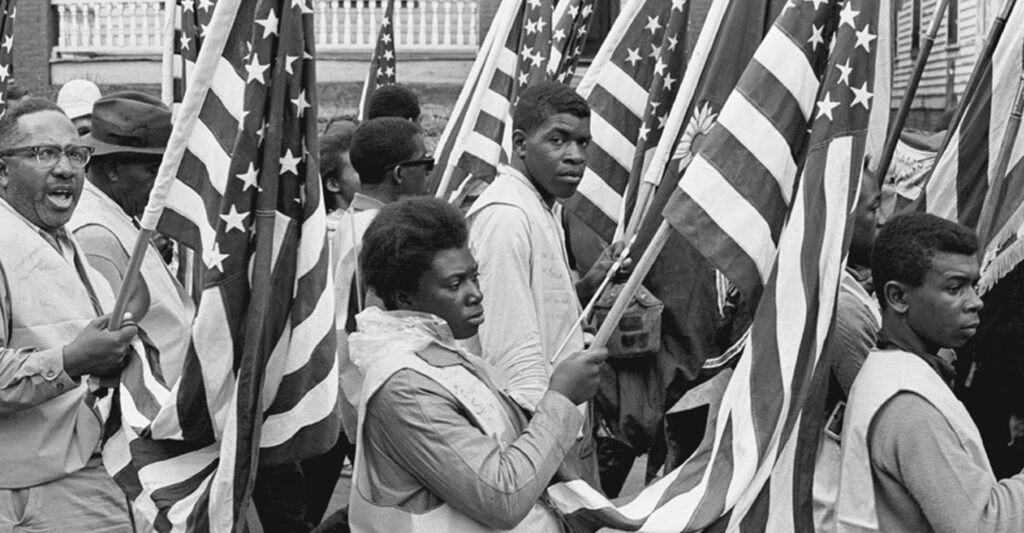Earlier this month, when I heard that the Supreme Court had struck down a lawsuit claiming that Arizona’s election laws were a form of racist voter suppression, I happened to be standing where civil rights leaders long ago gathered to talk about the very issue of fighting for the right to cast their vote without fear or intimidation.
These were the black leaders who envisioned an America where people of all colors could live together as equals, in peace, and with mutual respect. They weren’t politicians who tried to foment racial discord to advance a political agenda, something we see all too often today.
In 2005, I worked with Democrats and Republicans on the bipartisan Commission on Federal Election Reform, also known as the Carter-Baker Commission, which examined all the ways we could strengthen the integrity of American elections. Reforms such as requiring voter ID, verifying that only citizens voted, and sharing voter lists among the states to prevent people from voting twice were agreed to by both sides as good policy.
Yet today, the left is reneging on that agreement. Somehow, those were commonsense reforms in 2005. Now, the left calls many of them racist.
The left has tried to portray any legitimate attempt to pass election integrity reforms as the disenfranchisement of African Americans. They talk about black folks as if we are incapable of obtaining a state ID, getting to the polls on our own, or following simple election rules.
Now, as states try to pass laws to prevent fraud, increase the transparency of our elections, and ensure that every legitimate vote gets counted, the left once again is opposing many of these measures. It’s literally trying to stop states from removing dead people from the voter rolls, from preventing noncitizens from registering to vote, and from requiring people to prove they are who they say they are to vote (i.e., showing an ID)—which polling shows most Americans, including black Americans, agree with.
In the end, the left is attempting to make it easier for people to cheat, increasing the likelihood that more and more fraudulent votes will cancel out legitimate ones.
The left claims that it’s opposing these reforms because it wants to help African Americans. But in reality, it’s creating a situation that dilutes their—and everyone else’s—legitimate vote.
The fact is, the left’s real agenda isn’t about helping minority voters; it’s about helping themselves: They believe voter fraud favors their candidates, plain and simple.
Ultimately, the left wants to federalize elections, turning over the rulemaking from accountable state legislators to unelected federal bureaucrats. They are trying to pass bills such as HR 1 and S1 (the so-called For the People Act) and HR 4 (the John Lewis Voting Rights Advancement Act) and put the federal government in charge of state elections so that many reforms become impossible.
It’s a recipe for corruption.
Certainly, there was a time in America when some states had laws that deliberately discriminated against minorities (and I know firsthand because I lived in one of those states during segregation). There was a need for the federal government to intervene. But that’s not what’s happening today. The left would have us believe that we are still living in the segregated South of the 1960s.
Many politicians and many in the media continue to spread the lie that racism keeps people from voting, even though election results and census numbers clearly show that blacks and other minorities are showing up to vote in increasingly record numbers.
It would be a great irony and a great tragedy if the promise of the civil rights movement and the sacrifice of all those who fought and even died to protect our right to vote were undone because the left successfully cloaked its efforts in the name of civil rights.
Our sacred right to vote and the very future of our free republic depend on us making sure they fail.
Originally published by The Washington Times
Have an opinion about this article? To sound off, please email letters@DailySignal.com and we’ll consider publishing your edited remarks in our regular “We Hear You” feature. Remember to include the URL or headline of the article plus your name and town and/or state.
